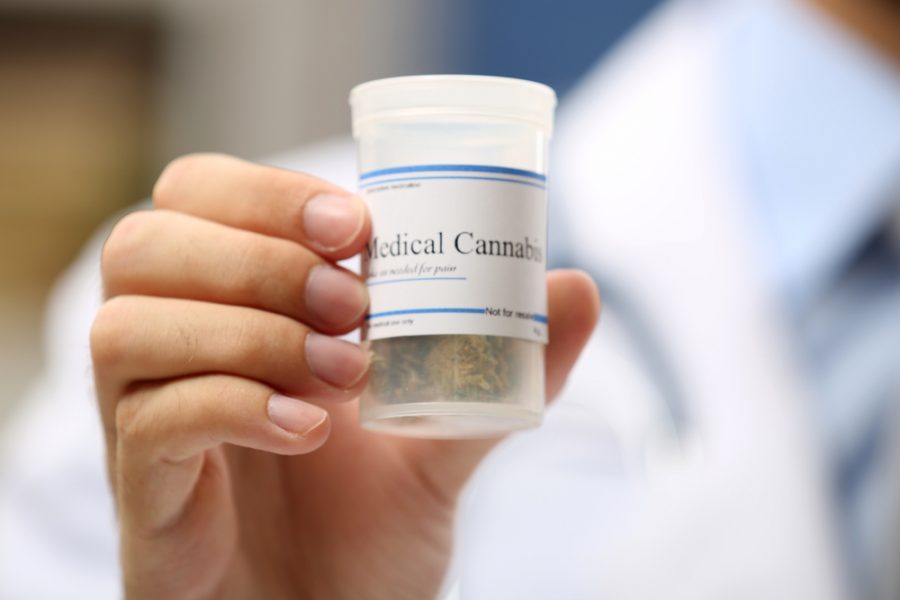Missouri Legalizes Medical Marijuana With Amendment Two
Published: November 19, 2018
On Tuesday Nov. 6, the state of Missouri had its midterm election. Many items were on the ballot for citizens to vote on. Over two million voters participated in the midterm elections. A major topic associated with November’s election was medical marijuana legalization.
Three pieces of legislation relating to medical marijuana were on the ballot. The Missouri Second Amendment advocates for legalization with a four percent tax that would benefit veterans. Proposition Three would legalize medical marijuana with a two percent tax rate, the tax revenue would benefit education, law enforcement, drug rehabilitation and veterans services.
Amendment Three was the most controversial of the three pieces of legislation. The amendment would legalize medical marijuana with a 15 percent tax. A local millionaire named Brad Bradshaw proposed and funded the proposal. All revenue would go to his “research initiative.” Bradshaw’s goal was to find a cure for cancer using marijuana, many Missourians questioned the legitimacy of the amendment. Does the research of a cure of cancer warrant a 15 percent tax per sale? He has no recorded medical experience, so it is questionable as to where this tax revenue would actually go.
Brad Bradshaw’s amendment failed to pass and so did the proposition taxing medical marijuana at two percent. The real victor from this November’s election was Amendment Two which advocated for four percent taxation, so now that medicinal marijuana is legal; what now?
A great number of states in the U.S. already have marijuana legalized, both in medical and recreational forms. Marijuana is taxed with every sale, an advantage of legalization for a state is reaping in the tax revenue. For example, Colorado’s education department has more funding than ever before. Due to revenue from marijuana taxes going to education. The Department of Revenue of Colorado measured the tax revenue from marijuana in the year 2017 as $247,368,473 million dollars. This amount would be very beneficial to the state of Missouri, this revenue could help balance the budget or help pay off the over $45 billion dollars the state has in debt. An area that could also be improved with marijuana tax revenue would be education, many school districts in Missouri are severely underfunded. The Missouri 2018 budget fell short $50 million dollars on education, that can be a painful shortage for some school districts. Marijuana tax income would vastly improve the education funding.
In 2017 there were 317 mass shootings. A large suspected culprit of this crisis has been mental illness. The recent legalization of medical marijuana presents a solution to this issue. A main reason that Amendment Two was passed was because of its goal to benefit veterans with PTSD. Five studies were conducted in Israel and the United States, the results of the studies were varied. One of these studies that took place in New Mexico with 80 patients, they reported 75 percent improvement in areas affected by PTSD. While these results seem very promising, more time is needed to determine if marijuana is a definite solution to PTSD. If so, marijuana could help prevent mass shootings. Which have been prevalent in recent years. PTSD has been a link to the causes of a number of shootings, but not all of them.
Amendment Two takes effect on Dec. 6th, but it will take time before people can purchase medical marijuana. Mark Habbas, a lobbyist and Spokesperson for Missourians for Patient Care said that “I’m going to say probably around 2020 before people can actually get any.” The wait is due to the months it will take to create an application process and start accepting applications. When those applications are finally accepted dispensaries can open up and people can start growing. This bureaucratic process may seem pointless but it will help to make sure that Missouri’s legalization goes off without a hitch. This system will make sure the trade is regulated and make it easier for the people who need marijuana to receive it. In a year’s time we will be able to start to see the effects medical marijuana will have on our state.









![FHN's Rescheduled Prom At Old Hickory Country Club [Photo Gallery]](https://FHNtoday.com/wp-content/uploads/2025/04/IMG_9932-48-300x200.jpg)
![Girls Varsity Soccer Falls to Liberty High School [Photo Gallery]](https://FHNtoday.com/wp-content/uploads/2025/04/03.27_GirlsSoccer_JDelapaz-15-300x200.jpg)
![JV Soccer Game Canceled Due To Lightning [Photo Gallery]](https://FHNtoday.com/wp-content/uploads/2025/04/4_10_JVsoccer_Mbarker-10-300x200.jpg)


